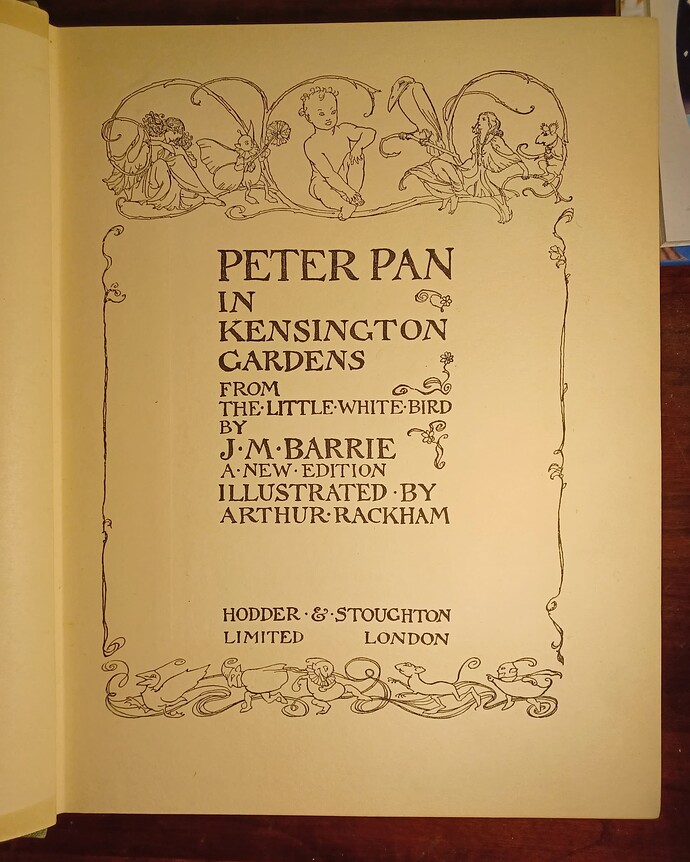We learn more about Tolkien’s conservative politics, especially during the Cold War. In a letter to his son Michael, dated Nov. 6, 1956, Tolkien notes the popular “hysteria” over Britain’s role in the Suez crisis. The Egyptian leader Gamal Abdel Nasser had seized the Suez Canal, causing Israel—joined by Britain and France—to send troops into Egypt to reclaim it. Meanwhile, the Soviet Union had just invaded Hungary to crush the democratic revolution led by Imre Nagy. “Half Oxford is in a kind of screaming frenzy—about Suez not Hungary!”
Tolkien proceeds to chide the Oxford professors and undergraduates noisily protesting government policy, the “pacifists” destroying private property, and the fellow dons screaming “fascist” at colleagues who disagreed with them. “What a rot and stink is left by liberalism devoid of religion!” He also worries that encroaching socialist policies will reduce him to poverty. “As it is socialist legislation is robbing me of probably ¾ of the fruits of my labors, and my ‘royalties’ are merely waiting in the bank until the Tax Collectors walk in and bag them. Do you wonder that anyone who can gets out of this island?”
Devon Eriksen, author of Theft of Fire, posts on 𝕏 about how he “writes like developing software”.
Some folks have expressed interest in my writing process, and my word quota on Box of Trouble is done for today, so I’ll talk a little about it here.
I use a lot of software engineering process to plan and create my novels. Source control, branching and merging, bug trackers, function contracts, even some “unit tests”.
(I’ll be heading a panel on this process at CONfinement in Lebanon, TN on March 1-3, so lots of details available there.)
In more general terms, I am an architect writer, rather than a discovery writer or “gardener”. I generally write about 25-35K words of outlines, notes, and summaries before the first actual reader-facing words are written.
I write from general to specific, proceeding from large scale outlines to section outlines to chapter and scene summaries. By the time I write an actual scene, the only decisions left for me to make are the exact wording of dialog and descriptions. All events, beats, and outcomes are preplanned.
This approach leaves me with no need at all to write scenes in order. I work in whatever section of the book I have ideas about on any given day.
I test extensively. My first line of testing, a sort of pre-alpha test, is my wives. When I have the text of a scene complete, I read it aloud to them. This helps me catch my own mistakes and shortcomings, as well as gauging their emotional reactions. They are under strict instructions to make no suggestions at all, only to describe their thoughts and feelings about what they heard. This process really help identify bits that are just “okay”, and don’t have that vivid immediacy of purpose, description, and experience. Sometime I rewrite a scene four or five times based on this.
When a manuscript is complete, it goes out to beta readers and my cover artist. This is what most writers would call a first draft, but the term doesn’t really apply so well here, because my planning-heavy process tends to mean that “first drafts”, while VERY slow to appear, are also very polished compared to what most would consider a first draft.
I use a LOT of beta readers.
My first line is a single alpha reader, who can be relied upon to finish in two or three days. She is a mother of two, who lives in Kansas and drives a school bus. Her feedback is invaluable.
Next come my beta readers. I use about 10-15, and if anyone doesn’t finish in two weeks, they are out. That doesn’t sound like a lot of time, but since my time to finish a manuscript is about nine months, and I hope to be able to turn out one novel a year, once that manuscript is done, every day counts.
I do video call interviews with all my beta readers, and the moment feedback starts coming in, I am busily editing away.
Only once the post-beta structural work is done is it time for my professional editor. I don’t get structural or story-flow feedback from her; that comes from beta reader feedback. She is laser-focused on line by line word choice, sentence structure, description and flow.
While I am waiting for her, I’m working with my cover artist, and @AnEriksenWife
is beginning to work up layout and interior design.Once editing notes are back, it’s all hands on deck. I have to go over notes and decide how, or if, to incorporate each one, final layout has to happen, and proofreading (the bane of everyone’s existence), and a thousand other tiny tasks that make the difference between polished volume and indie shovelware.
I review and sign off on the final version of all decisions. Everyone who touches one of my novels works for, and answers to, me. Everything is carefully curated to match a single artistic vision.
If you noticed sense of meticulous detail in Theft of Fire, it was not the result of some singular magical genius or inspiration, but rather of a tiresome obsession with detail, and an author who is a razor-tongued, hot-tempered control freak.
Tradpub can’t do that because authors simply don’t have that kind of control. I’ve had fellow authors complain to me about the horrible cover art they were “given”. Meanwhile, I’m issuing precise instructions about the angle of an illustrated character’s eyebrows.
Hopefully, this gives you a sense of how the whole process flows. I’m not an inspired genius accepting transmissions from the grand muse of the universe. I’m an obsessive, purpose-driven craftsman with a master plan and no chill whatsoever.
I hope you enjoy the results, and I hope this clears up a little bit about what’s happening behind the curtain.
Absolutely fascinating!! I was not familiar with this author and will correct that post haste. I have occasionally toyed with the notion of writing a novel of some kind, but find the prospect so overwhelming, I have never even started. In my bizarre imaginings, the entire thing would somehow be delivered whole in some magical way. Chaos would mystically distill into a finished assembly of artistic, inspiring, insightful words immanent with the Creator’s understanding of all that was, is and ever shall be.
Now that I see novels can be created in a manner similar to software/engineering, one person comes immediately to mind as potential fabulous novelist. I’m thinking of you @johnwalker ….
Wondering how many wives is he talking about here… ![]()
He says he has two, Christine Eriksen and Acrobatic Hobbit.
My guess is that you have more than enough talent to do so and I think you should try.
I am not a very creative person, but one creative hobby I have is creating games. Either computer or board. None have turned out good and mostly they don’t get completed. The activity can be very engaging and exciting. It can be frustrating, hard and sometimes feels like a slog.
It may seem like not being able to finish would make it a waste or a failure, but I don’t feel that way. Yes, I wish I could have a finished product that matched what was in my head. I don’t need to earn money. I don’t have to be successful. I don’t even have to show anybody my failures and I don’t need anyone’s praise. If I were a woodworker, my shop would be full of a bunch of various pieces of furniture and no finished furniture. I refuse to punish myself for doing something I do for the challenge and enjoyment.
Like a crossword puzzle, each word is a problem in of itself. Each word provides that struggle and small success when you figure out the word. You want to solve the whole puzzle, but it is a worthwhile, fun challenge whether you solve the whole puzzle or not.
Therefore, I encourage you to try and to try without thinking you must finish a novel for it to be beneficial to you. My bet is if you just commit to attempting an outline of a novel, you will learn whether you enjoy the process and will have a beneficial experience whether you continue or not.
Thank you for the link to Devon’s X account. I have had an enjoyable time reading many of his posts. He excels at dunking the communists. I am convinced that the best way to deal with these people is to straight up point out that they are thieves trying to hide as virtuous people.
One of the better examples is his take down of Open AI temporary CEO Emmett Shear’s idea to have a 100% inheritance tax (walked back to 50%).
This is his response to Emmett questioning property rights. Sorry for the format, I struggle with the blockquote markup or something.
How is this man being selected as the CEO of OpenAI, however briefly, when he is still groping in the dark, struggling to understand even the most basic of concepts behind his own civilization? Has it never occurred to him to wonder why hunter-gatherer societies don’t have a concept of personal land ownership, but agricultural societies do?
All of the human technology stack is based upon investment. Not merely in the modern, financial, sense, but the investment of effort.
If I am a protohuman, using a stone as a pounding tool, I do not care if you take my stone. I will simply pick up another stone. But if I chip my stone into a spearhead, then I will not let you take my spearhead, because that would take away the effort I have invested.
From the moment humans gained the ability to build and farm, land became something they could invest effort in.
And land ownership became necessary so they would do that.
All of the bullshit ya’ll think is so important: governments, laws, philosophical principles about rights, etc… these are all just tools, possible means of protecting investment. It doesn’t matter what set of tools you use, so long as they work and investments are protected. If a man can be certain his investments will not be taken away from him by parasites, thieves, and robbers, he will invest. If he is certain that they will, he will not invest.
And without that investment, you have nothing. You are literally a wild animal, living as wild animals do.
If you don’t want that, you need the concept of property. It doesn’t matter where you say it “comes from”, whether that be god(s), “natural” rights, abstract philosophical concepts, whatever. And it doesn’t matter how you enforce it, whether it be laws, police, and courts, armed property owners, a high-society where people are conditioned not to steal, or all of the above.
What matters is that somehow, some way, people get to keep and benefit from what they invest in.
I think it is worth reading the whole series of posts. He pile drives the smart guy’s logic that Emmett is a smart dude. It is so wonderful to watch a person dismantle someone that cannot address his arguments.
There’s been a systematic neo-Marxist attack on private property, and the argument used is the promotion of “community governance” by Elinor Ostrom
Here’s a quick gushing Google Bard LLM synthesis of her arguments:
Rejection of the “tragedy of the commons” : Ostrom rejected the idea that common-pool resources are inherently doomed to overuse and degradation due to individual self-interest. She argued that communities have successfully managed such resources for centuries through collective action and self-governance.
Focus on self-organizing institutions : Ostrom emphasized the importance of local institutions and rules developed by communities themselves to manage the commons. These institutions often involved clearly defined boundaries, shared monitoring and enforcement mechanisms, and flexible adaptation to changing conditions.
Eight design principles : Based on her extensive research, Ostrom defined eight design principles that contribute to the success of self-organizing institutions for managing commons. These principles include things like clear boundaries, participation in decision-making, graduated sanctions, and conflict resolution mechanisms.
Emphasis on diversity and context : Ostrom recognized that successful commons management varies greatly depending on the specific context, including the type of resource, the community’s culture and history, and the socio-economic environment. She cautioned against applying singular solutions to diverse situations.
Importance of trust and reciprocity : Ostrom argued that trust and reciprocity are crucial for communities to cooperate in managing their commons. These values are fostered through shared experiences, social norms, and effective institutions.
Contribution to policy and scholarship : Ostrom’s work has significantly influenced policy discussions on sustainability, natural resource management, and community-based governance. Her research has inspired new theoretical frameworks and practical approaches to managing commons around the world.
Ongoing relevance : Ostrom’s insights remain highly relevant today as societies grapple with challenges like climate change, water scarcity, and the management of shared resources. Her work offers valuable lessons for designing sustainable and equitable solutions for diverse commons problems.
On 2024-01-07 Kurt Schlichter, author of the eight volume (so far) People’s Republic series (link is to my review of the first book in the series), has just released a new, entirely different, novel, The Attack.
The novel, written in the multi-viewpoint style of Max Brooks’s World War Z, tells the story of continent-wide coordinated attacks on soft targets in the U.S., taking advantages of that country’s porous southern border to infiltrate sleeper cells and weapons in advance of the attack. The narrative is set several years later, describing the attacks in the words of survivors, those responding to the attacks, and the aftermath as the U.S. responded to this assault on its own territory.
Here is the description on Amazon.com.
From the author of the bestselling Kelly Turnbull People’s Republic series of action novels comes his latest thriller, THE ATTACK. Set in the very near future and ripped from today’s headlines, THE ATTACK is a terrifying novel that describes in frightening detail exactly how America’s enemies could launch a massive terrorist assault here at home. From the White House to the Middle East, from the blood-stained streets of America’s suburbs to the cockpit of a B-2 bomber that will initiate the first blow in America’s merciless vengeance, THE ATTACK blends vivid realism with stirring action.
With input from key military and counterterrorism experts, THE ATTACK tells the story of a cunning, implacable, and brutal enemy taking advantage of a confused and weak president to launch an assault that dwarfs Hamas’s strike on Israel. With a wide-open border and American law enforcement focused on churchgoers and parents attending schoolboard meetings, the jihadist enemy can pick the time and place for its deadly attack. The only things standing in its way are the courage of America’s brave first responders and military, as well as regular citizens who are caught up in the bloodshed and are forced to fight back.
Although the book was written and rushed out after the 2023-10-07 attack on Israel, it is a full 336 pages in length. The Kindle edition is free for Kindle Unlimited subscribers.
Peter Pan in Kensington Gardens 1st ed., all plates intact. (need to send the plates Project Gutenberg’s copy is missing)
I finished reading Theft of Fire today. I thought it was very good. Thanks for the link.





